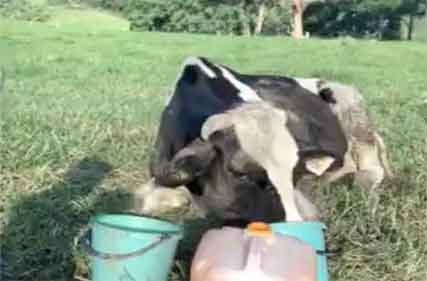 NSW Western Local Land Services is urging producers to be alert for signs of Bovine Ephemeral Fever, also known as Three Day Sickness, in their herd following a confirmed case in the Western region.
NSW Western Local Land Services is urging producers to be alert for signs of Bovine Ephemeral Fever, also known as Three Day Sickness, in their herd following a confirmed case in the Western region.
The confirmed case occurred on a property in the Balranald area and follows confirmed cases in other parts of NSW this season, including in the North Coast and North West.
Local Land Services Team Leader Animal Biosecurity and Welfare, Lou Baskind said the confirmed case in the Western region highlights that this is a particularly high-risk season for this disease across NSW.
“With this virus moving into new areas we’re urging farmers to remain vigilant and keep a lookout for signs of Three Day Sickness,” Dr Baskind said.
“Our records suggest that in the Balranald area, this is roughly a 1-in-10 or a 1-in-15 year event.
“Signs include animals developing a high temperature, which makes them appear depressed and lethargic, while animals laying down, not feeding, appearing lame, drooling and nasal discharge are also common indications.
“Landholders who notice these signs should contact their Local Land Services District Veterinarian, Biosecurity Officer or their local veterinary practice.
It is important that affected cattle receive appropriate care and treatment to minimise the negative impacts on animal welfare and production.”
Three-day sickness is an insect-transmitted virus of cattle that causes a high fever and pain in the muscles and joints, with symptoms usually lasting a few days before most cattle recover.
Some cattle, especially bulls and heavier conditioned animals, may go down and take several days to get back to their feet, which can prompt an increased risk of other complications.
If animals are untreated, they may become seriously ill and, in some cases, die, while there is also a risk of pneumonia, while pregnant cows may abort and bulls can become infertile for up to 6 months.
The insect vector of significance in the south west is the common mosquito (Culex annulirostrics) and this season has provided perfect conditions for large mosquito populations to develop.
The risk is expected to remain for the next 2 months, or until colder weather and frosts occur.
Landholders are encouraged to regularly monitor their herd and contact Local Land Services on 1300 795 299 or private veterinarian to report any concerns.
For further information, visit our Three Day Sickness webpage.
-Local Land Services
